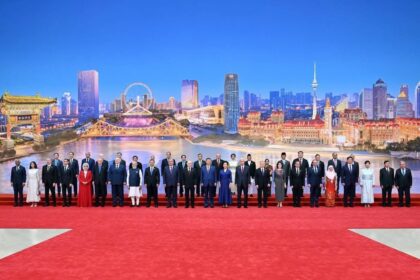Artificial intelligence is rapidly transforming economies worldwide and reshaping the way governments function and deliver public services. Recognizing this global shift, Pakistan’s Ministry of Planning, Development, and Special Initiatives, led by Professor Ahsan Iqbal, is taking practical steps to integrate artificial intelligence effectively into the country’s policymaking and governance structures.
Speaking at the annual Conference on Artificial Intelligence for Public Policy and Governance, Federal Minister Ahsan Iqbal highlighted the crucial role of AI in ushering in an era of transparency, innovation, and inclusive growth for Pakistan. Addressing senior civil servants, policy experts, and intellectuals, he emphasized that adopting AI is essential for Pakistan to become more globally competitive and efficient in addressing national challenges.
Under the “Uraan Pakistan” initiative, the government is laying a strong foundation for AI-driven reforms through evidence-based policymaking using real-time data, AI-powered public services for improved accessibility and transparency, better governance by forecasting and managing challenges in climate change, public health, and infrastructure, as well as fostering innovation-led exports to enhance Pakistan’s presence in the global market.
The adoption and integration of AI align closely with the government’s five priority pillars—exports, Digital Pakistan, equality, environment, and energy—outlined in the 5Es framework. The aim is to move beyond pilot projects toward the effective nationwide implementation of AI to strengthen institutional capacity, improve policy effectiveness, and prepare Pakistan’s economy for the demands of the future.











